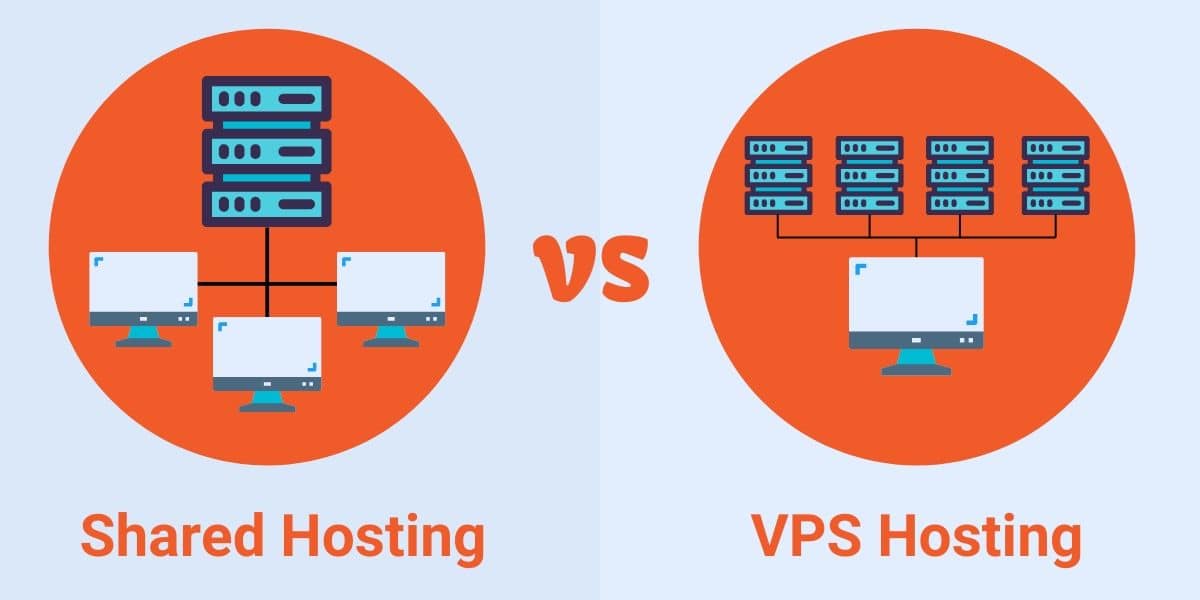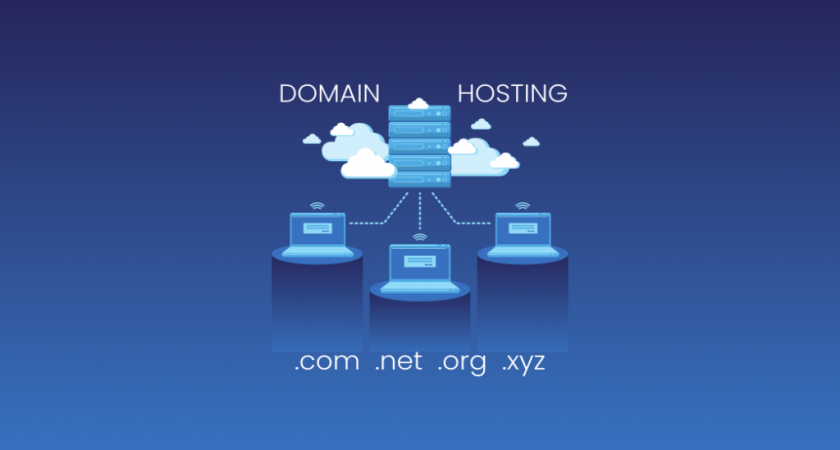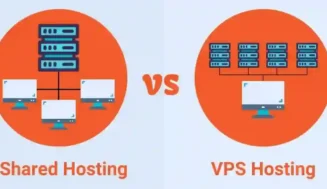Shared vs VPS Hosting Plans – Which Should You Choose?

In today’s digital age, having an online presence is crucial for businesses and individuals alike. Whether you’re running a small blog or managing a thriving e-commerce platform, choosing the right hosting plan is a decision that can significantly impact your website’s performance, security, and overall success. Two popular hosting options that often come up in this debate are Shared Hosting and Virtual Private Server (VPS) Hosting. In this comprehensive guide, we will delve into the world of web hosting to help you make an informed choice between these two hosting plans.
What Is Shared Hosting?
Shared Hosting is like the economy class of web hosting. It’s a hosting environment where multiple websites share resources on a single server. Think of it as sharing a room in a hostel with fellow travelers. Here are some key characteristics of Shared Hosting:
1. Cost-Efficient
One of the most significant advantages of Shared Hosting is its affordability. Since multiple users share the server’s resources, the cost is divided among them, making it an excellent choice for those on a tight budget.
2. Easy Setup
Shared Hosting is user-friendly and perfect for beginners. Most hosting providers offer a user-friendly control panel, making it easy to manage your website without technical expertise.
3. Limited Resources
However, there’s a catch. Shared Hosting comes with limited resources. You’re sharing server resources like CPU, RAM, and bandwidth with other websites. If one site experiences a traffic spike, it can potentially affect the performance of other sites on the same server.
4. Security Concerns
Security can be a concern in Shared Hosting. While hosting providers implement security measures, the shared nature of the hosting environment can make your site vulnerable to attacks if a neighboring site is compromised.
What Is VPS Hosting?

Virtual Private Server (VPS) Hosting is like flying first class. It provides a more premium and dedicated hosting experience. Here are some key characteristics of VPS Hosting:
1. Dedicated Resources
VPS Hosting offers dedicated resources, including CPU, RAM, and storage space. This means your website’s performance is not affected by other sites sharing the server.
2. Enhanced Performance
With dedicated resources, VPS Hosting delivers better performance and faster loading times. This is crucial for websites with high traffic or resource-intensive applications.
3. Scalability
VPS Hosting is highly scalable. You can easily upgrade your resources as your website grows, ensuring that it can handle increased traffic and demands.
4. Improved Security
In VPS Hosting, your virtual server operates independently of others on the same physical server. This isolation provides better security, reducing the risk of security breaches due to neighboring websites.
Shared Hosting vs. VPS Hosting – Which Is Right for You?
Now that we’ve explored the key features of both Shared Hosting and VPS Hosting, it’s time to determine which one suits your needs best. Here are some factors to consider:
1. Budget
If you’re on a tight budget and running a small website or blog, Shared Hosting may be the more economical choice.
2. Performance
For websites with high traffic, resource-intensive applications, or e-commerce platforms, VPS Hosting offers the performance needed to ensure a smooth user experience.
3. Scalability
Consider your future growth. If you anticipate significant growth in website traffic, VPS Hosting allows for seamless scalability.
4. Security
If security is a top priority, VPS Hosting’s isolation and dedicated resources provide a more secure environment for your website.
5. Technical Expertise
Shared Hosting is beginner-friendly, while VPS Hosting may require more technical know-how for setup and management.
FAQs
Q1: Is shared hosting suitable for an e-commerce website?
A1: Shared hosting can work for small e-commerce websites with limited traffic. However, as your online store grows, consider transitioning to VPS hosting for better performance and security.
Q2: Can I upgrade from shared hosting to VPS hosting later?
A2: Yes, most hosting providers offer the option to upgrade your hosting plan as your website’s needs evolve. It’s a smooth transition process.
Q3: Are there managed VPS hosting options for those with limited technical skills?
A3: Absolutely. Many hosting providers offer managed VPS hosting, where they handle the technical aspects, leaving you to focus on your website’s content and growth.
Q4: What are some signs that I should switch from shared to VPS hosting?
A4: If you notice frequent performance issues, security concerns, or resource limitations on your shared hosting plan, it might be time to consider upgrading to VPS hosting.
Q5: Which hosting option is more eco-friendly?
A5: VPS hosting is generally considered more eco-friendly since it allows for efficient resource allocation, reducing energy consumption compared to shared hosting.
Conclusion
In conclusion, the choice between Shared Hosting and VPS Hosting depends on your specific needs and budget. Shared Hosting is a cost-effective solution for beginners and small websites, while VPS Hosting offers enhanced performance, scalability, and security for more demanding projects. Carefully assess your requirements and choose the hosting plan that aligns with your goals and resources. Your website’s success and user experience depend on making the right choice.







